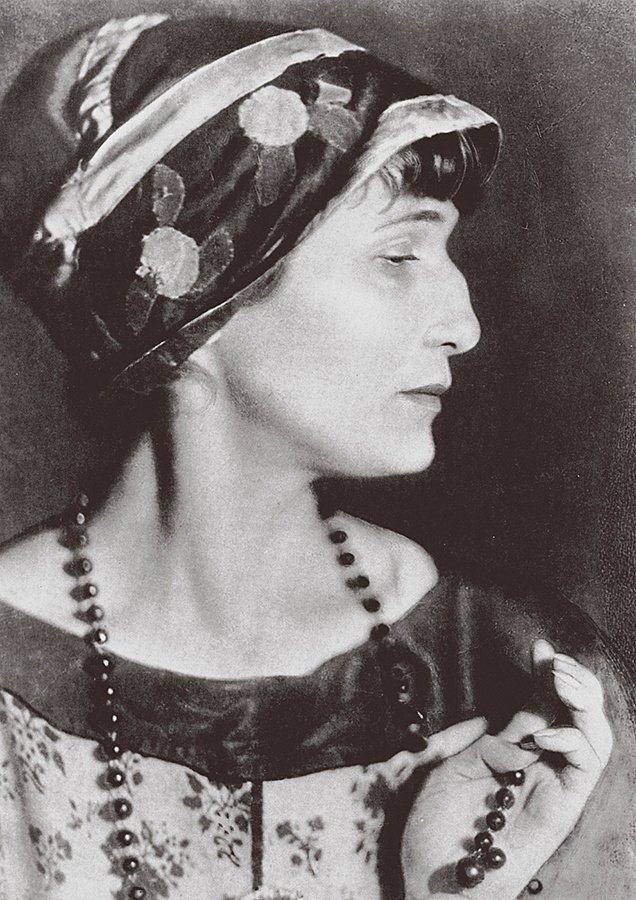Akhmatova, << ahk MAH tuh vuh, >> Anna (1889-1966), was the pen name of Anna Andreyevna Gorenko, one of the most important woman poets in Russian literature. Akhmatova was noted for her skill with language and her emotional and artistic honesty. Akhmatova’s best work demonstrates her ability to describe the feelings experienced by all human beings, especially love.

Akhmatova was born on June 23 (June 11 on the Russian calendar then in use), 1889, at Bolshoy Fontan (now Velykyi Fontan), near the Black Sea port of Odesa, Ukraine, which was then part of the Russian Empire. While she was still a child, her father, a retired naval officer, moved the family to the St. Petersburg area. There, Anna attended a gymnasium (junior and high school). She completed her gymnasium education in Kyiv and briefly studied law there.
Akhmatova began writing poetry at the age of 11. When she was 22, she joined a group of Russian poets in St. Petersburg called the Acmeists and soon became one of its leading figures. The group opposed the vague and abstract poetry of the Russian Symbolist poets of the time. Instead, the Acmeists tried to write clear, simple, compact, and well-crafted poems about real people and real feelings.
Akhmatova’s earliest poems are outstanding examples of the Acmeist style. The poems are brief, highly personal lyrics, written in everyday language. Most of the verses deal with frustrated love. Her early collections include Evening (1912), Rosary (1914), The White Flock (1917), and Anno Domini MCMXXI (1922).
The Russian Revolution of 1917 led to the establishment of the Union of Soviet Socialist Republics in 1922, eventually led by dictator Joseph Stalin (see Union of Soviet Socialist Republics (U.S.S.R.)). Soviet critics condemned Akhmatova’s poetry for its emphasis on love and God, which did not follow the government political guidelines on literature. In 1925, a Communist Party resolution banned her poetry. Akhmatova did not publish any poetry from 1923 to 1940, and she suffered almost complete literary isolation.
During World War II (1939-1945), especially after the German invasion of Russia in 1941, Akhmatova wrote and recited some war-inspired poems and began to have her work published. Nevertheless, in 1946, the government again condemned her poetry. She was expelled from the Union of Soviet Writers, a union of professional writers formed by the Communist Party. Writers who did not belong found it almost impossible to get their work published.
Following the death of Joseph Stalin in 1953, Akhmatova’s work slowly came back into favor. In 1958, a small book of her poems was published. She also translated the verse of several foreign poets into Russian and wrote literary essays. Starting in the early 1960’s, her works became internationally known through translation.
One of Akhmatova’s finest later works is Requiem (written 1935-1940 and first published in 1963). This series of poems depicts the sufferings of the Russian people under Stalin’s harsh rule. Another major work is Poem Without a Hero (written 1940-1962 and published in its final form in the 1970’s). It is her longest poem. This complex piece is woven around the central tragedy of a young poet’s suicide. Akhmatova died on March 5, 1966. Her reputation has continued to grow after her death.
